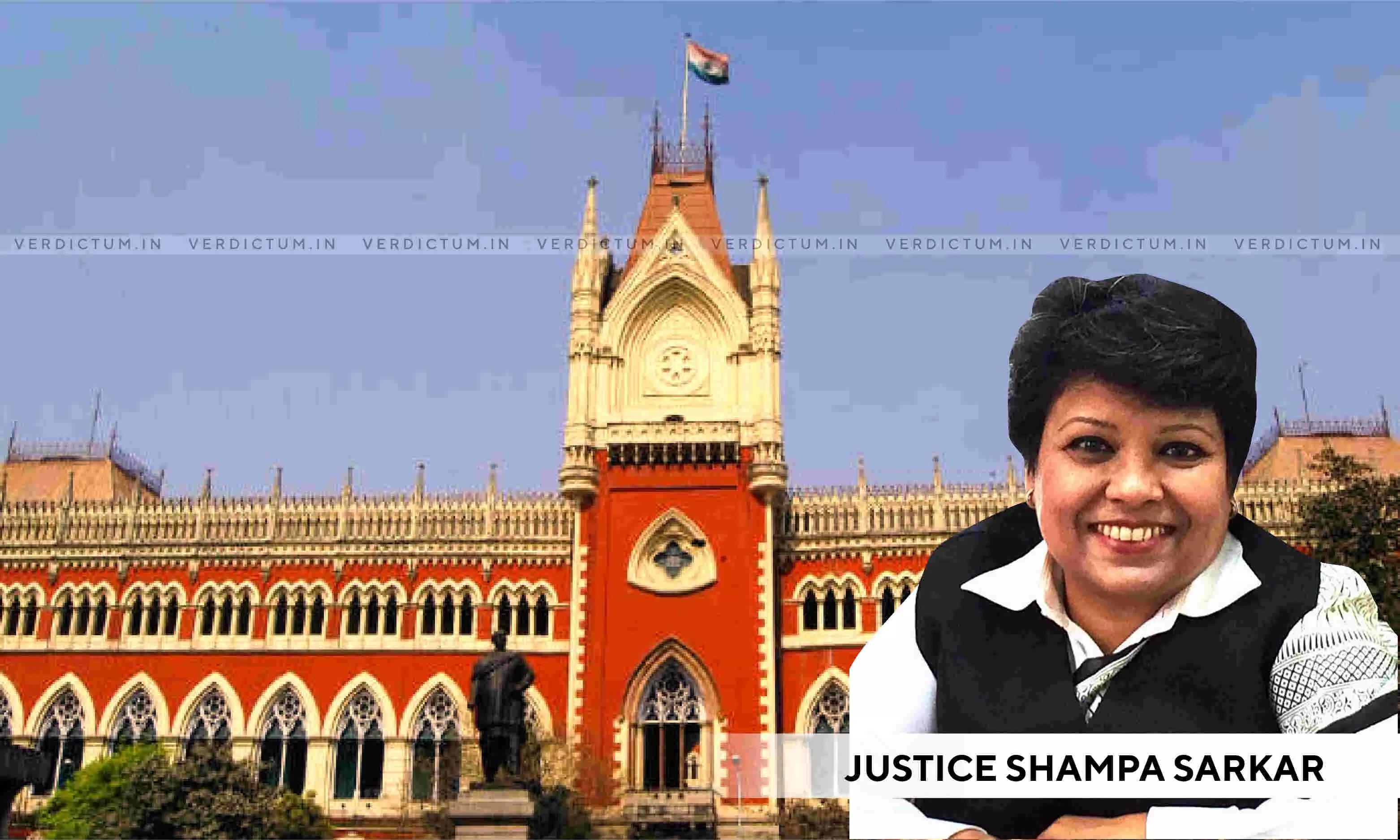
Arbitration Clause In Incomplete & Unfinalized MOU Not Enforceable: Calcutta High Court
 |
|The case arose from a business transaction initiated in October 2020, wherein the respondent engaged with the petitioner regarding the proposed sale and takeover of certain assets, including plant and machinery, for a consideration of Rs. 21 crores
The Calcutta High Court has ruled that an arbitration clause contained in an incomplete and unfinalized Memorandum of Understanding (MOU) cannot be the foundation for initiating arbitration proceedings.
The Single Bench of Justice Shampa Sarkar emphasized that a document that remains incomplete and lacks crucial details cannot be enforced as a legally binding agreement under the Arbitration and Conciliation Act, 1996.
"The alleged MOU of February 9, 2022, remained in a draft form, which was incomplete. There were no further documents which would show that the terms had been finalized. The said MOU was sent by email on February 9, 2022, to enable the petitioner to make the necessary corrections and also for further discussion with Mr. Ashok Agarwal. Although, the alleged draft MOU contained an arbitration clause, but as the said MOU was neither finalized nor executed between the parties, the arbitration clause could not be said to be binding. The same could not be treated as an enforceable clause," the Court observed.
Background
The case arose from a business transaction initiated in October 2020, wherein the respondent engaged with the petitioner regarding the proposed sale and takeover of certain assets, including plant and machinery, for a consideration of Rs. 21 crores. As part of this transaction, an advance payment of Rs. 3 crores was made, subject to forfeiture if the respondent failed to fulfill their contractual obligations.
Subsequently, a Memorandum of Understanding (MOU) dated February 9, 2022, was prepared to formalize the arrangement. The MOU also contained an arbitration clause (Clause 12.3) to govern the resolution of disputes. However, the respondent failed to meet the agreed payment obligations, which gave rise to disputes. In response, the respondent unilaterally appointed an arbitrator, but notably, neither the respondent nor the arbitrator participated in the scheduled arbitration proceedings. As a result, the arbitral tribunal's mandate was terminated for lack of cooperation.
The petitioner later issued a demand letter on September 14, 2023, seeking remedies. After receiving a denial of claims from the respondent, the petitioner invoked Section 15(2) of the Arbitration and Conciliation Act, appointing a substitute arbitrator, a senior advocate of the Calcutta High Court. Despite this effort, the dispute over the validity of the arbitration clause continued. Consequently, the petitioner approached the Calcutta High Court under Section 11 of the Arbitration Act, seeking appointment of an arbitrator under the MOU.
Petitioner's Contentions
The petitioner contended that:
- The MOU dated December 7, 2020, was an interim arrangement to facilitate operational control transfer.
- The exchange of emails between parties constituted valid execution of the arbitration clause under Section 7(4)(b) of the Arbitration Act.
- The arbitration clause under Clause 12.3 was binding and enforceable.
- Even allegations of fraud and misrepresentation were arbitrable and could be resolved by the appointed arbitrator.
Respondent’s Objections
The respondent challenged the maintainability of the arbitration petition on several grounds:
- The MOU was never formally executed and contained multiple blank fields, making it unenforceable.
- Essential elements such as loan amounts, payment schedules, asset values, takeover modalities, and identity of signatories were missing.
- The petitioner’s demand letter dated September 14, 2023, made no reference to any arbitration clause, which reflected the petitioner’s own understanding that the MOU was not binding.
- As the cause of action arose in Odisha and Raipur (Chhattisgarh), the Calcutta High Court lacked territorial jurisdiction. The respondent argued that the application under Section 11 should have been filed before the Odisha High Court.
Court’s Observations
The Court critically examined the contents of the MOU and observed that the document circulated on February 9, 2022, was incomplete, with blank spaces for crucial commercial details, and therefore lacked the essential elements of a concluded contract. It further observed that the absence of reference to an arbitration clause in the September 14, 2023 demand letter further reinforced that the petitioner was not relying on the MOU but on an oral or informal understanding.
On the issue of jurisdiction, the Court agreed with the respondent, noting that the entire cause of action arose outside West Bengal and there was no basis for invoking the jurisdiction of the Calcutta High Court.
The Single Bench concluded that the arbitration clause contained in the unexecuted and incomplete MOU was not binding under Indian contract law principles and could not be relied upon to initiate or sustain arbitration proceedings. “The tenor of the demand letter clearly indicates that the petitioner sought to hold the respondent liable through civil or criminal proceedings but did not invoke any arbitration clause. This further strengthens the conclusion that the arbitration agreement was not binding," it said.
Conclusion
Accordingly, the Court dismissed the petition, holding that the arbitration clause contained in an incomplete and unfinalized MOU was unenforceable and no arbitrator could be appointed based on such a document.
Cause Title: M/s Greenbilt Industries Private Limited v. M/s A B Dinesh Concrete Private Limited [AP (COM) 421 of 2024]
Appearance:-
Petitioner: Advocates Kumarjit Banerjee, Sanchari Chakraborty
Respondent: Advocates Sourav Kumar Mukherjee, Falguni Jana, Sahana Pal, Souhardya Mitra
Click here to read/download the Judgment